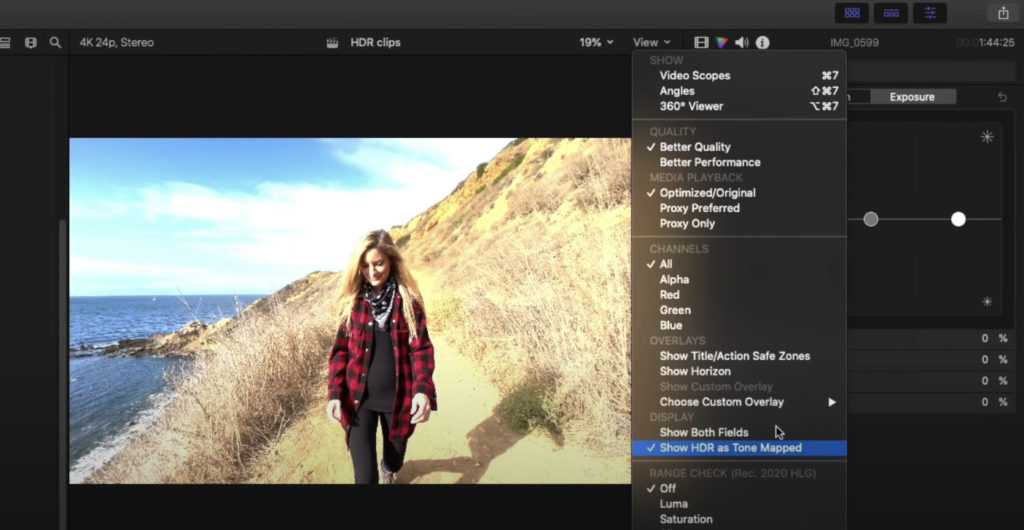
Add an Image or Video Overlay on Green Screen You can also adjust the tolerance by dragging the slider. You can pick the color you want to remove by clicking on the color picker. Click on ‘Options’ and an option to ‘Remove Color’ will appear. Once you are in ‘Edit’ mode, click on your video and the ‘Main Video’ timeline will be highlighted in blue.Ī menu will appear. You can find the green screen option by opening your recording in the video editing software.
#How to use a green screen on mac final cut pro how to#
You can find instructions below on how to add an image or video background. It does not allow you to add during a recording. Please note that you can add an image or video background during the editing process. This opens up a menu giving you the option to remove your background. A pencil icon will appear on the upper right-hand corner of your webcam. When you record with your webcam or ‘both’ (using the screen and webcam), you have the ability to remove the green screen. You can remove your green background in either the screen recorder or in our video editing tools. There are two ways to use a green screen on Screencast-O-Matic. We’ve included multiple resources to help you with your video project. Here’s a how-to guide to get started with Screencast-O-Matic’s green screen software. You can do this easily with our green screen technology. To apply the change, click the Apply button in the Green/Blue Screen controls.Remove your background and replace it with a custom photo or video for a visual effect.

To apply the changes, click the Apply button in the Green/Blue Screen controls. You can also drag the ends to lengthen or shorten it.Ĥ. To reposition the green-screen or blue-screen clip, drag it to a different spot within the clip, or to a different clip. If the frame below the playhead isn’t representative of the rest of the clip, you may need to reposition the playhead and reapply the effect. The color that iMovie removes is based on the dominant color in the frame at the position of the playhead when you choose Green/Blue Screen from the pop-up menu. In the viewer, the clip shot against the green or blue backdrop has the green or blue removed, and the clip below shows through the areas that were green or blue, creating a composite image. Click the pop-up menu on the left and choose Green/Blue Screen. If the video overlay controls aren’t shown, click the Video Overlay Settings button.ģ. When you see the green Add icon (+), release the mouse button.Ģ. In the timeline, select a clip or range that you shot against the green backdrop, and drag it above a clip in your project.For more information, see Apply audio effects to clips. You can reduce the volume of either clip so that sound from the other clip stands out. The audio from the original clip and the audio from the green-screen or blue-screen clip play simultaneously. You can also drag the green-screen clip over a solid-color or animated background clip.

For example, you could record a friend dancing in front of a green or blue backdrop, and then place that video over a clip showing a starry sky, so that your friend appears to be dancing in the sky. This is called a green-screen (or blue-screen) effect. You can record video in front of the green backdrop in the Digital Media Lab, and then “cut out” the subject and superimpose it over another video clip or image.


 0 kommentar(er)
0 kommentar(er)
